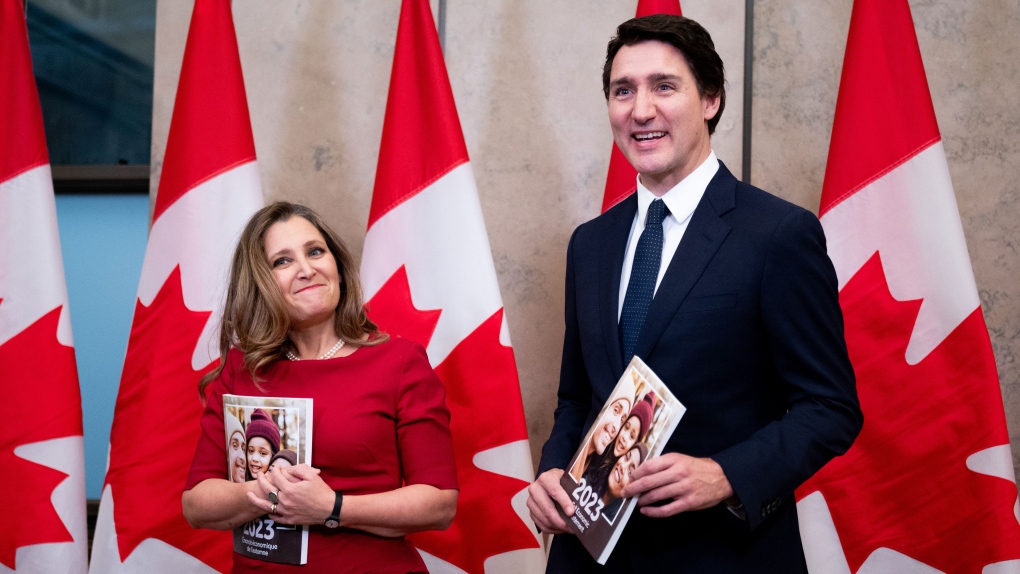Finance Minister Chrystia Freeland presented the fall economic report on November 21, providing Canadians with an update on the country’s financial situation and introducing some new measures to address the housing crisis.
Here are the highlights:
$20.8 billion: New federal spending since the spring budget.
$488.7 billion: Total government spending for the current fiscal year, until the end of March 2024.
1.1%: Actual GDP growth rate for 2023. The expected growth is projected to decrease to 0.4 next year, but the government states that they do not believe this decline will lead to an economic recession.
$40 billion: Updated deficit for this year.
$38.4 billion: Expected deficit for next year — an increase of $3.4 billion from the government’s previous forecast.
$15 billion: Expected amount to fund loans, starting from the fiscal year 2025-2026, to build over 30,000 homes across Canada.
$1 billion: Cost of the new affordable housing fund over three years, starting from the fiscal year 2025-2026, which the federal government plans to use to construct 7,000 new homes.
Up to $7 billion: The Clean Technology Economic Investment Fund allocated for specific contracts to give companies the necessary confidence to make significant investments to reduce greenhouse gas emissions.
$309 million: Funding for a new housing development partnership program, aiming to launch a collaborative development program that the government plans to implement in early 2024.
$35 million: Estimated cost for a public inquiry into foreign interference efforts, including $10 million this year, $22 million in 2024-2025, and $3 million in 2025-2026.
$50 million: The amount the government proposes to spend over three years, starting from next year, to assist local authorities in restricting short-term rentals such as Airbnb and Vrbo.
To achieve this, the government will deny homeowners renting short-term accommodations a tax deduction for income tax incurred when renting their short-term rental properties in areas subject to short-term rental restrictions, such as Toronto, Montreal, and Vancouver. The government will also deny tax deductions in cases where short-term rental operators do not comply with current licensing or registration requirements. Expected to take effect on January 1, 2024.
$129 million: The amount over five years that the government plans to spend for the updated Canadian journalism tax credit, starting from this year. Ottawa proposes to increase the labour spending limit for each qualified newsroom employee to $85,000, from $55,000, and increase the allowable salary amount that can be claimed under the program to 35%, from 25%.
The government will update the mortgage rules to ensure that financial institutions provide appropriate relief measures and fair repayment for borrowers.
Cooperative housing companies providing long-term rental housing will be eligible for the GST exemption for new rental housing.
The federal government will waive GST and HST on counselling and psychotherapy services.
Tackling junk fees: Ottawa is reviewing details on junk fees. Aimed at ensuring that airlines allow children under 14 to sit next to accompanying adults without additional charges; also requiring the Canadian Radio-television and Telecommunications Commission to conduct an investigation into international mobile roaming fees.
Extended 15-week adoptive benefits may be shareable as part of the employment insurance system, starting from this year. An additional four weeks of regular employment insurance benefits for seasonal workers will be provided, starting from this year.






